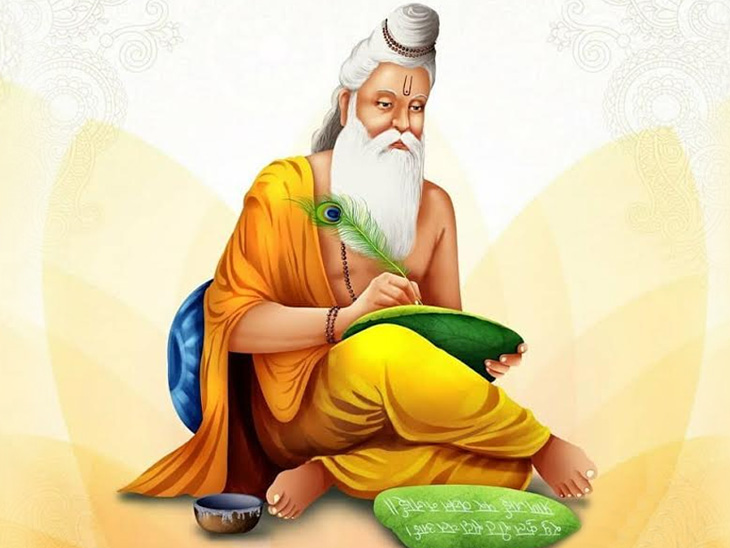Maharshi Valmiki, often referred to as the "Adi Kavi" or the first poet, holds a revered place in Hindu tradition as the author of the epic Sanskrit poem, the Ramayana. His life and work are central to the cultural and spiritual heritage of India, and his contributions to literature have had a profound and lasting impact.
Valmiki's life is believed to have spanned several centuries ago, and historical records about him are scarce. According to traditional accounts, he was born as Ratnakara in a Brahmin family, but his life took a dramatic turn. Abandoned by his parents, Ratnakara grew up in the forest, where he became a highway robber to support himself and his family. His life of crime, however, would undergo a significant transformation.
Legend has it that one day, while attempting to rob the great sage Narada, Ratnakara was confronted with the consequences of his actions. Narada asked him if his family would share the burden of his sins, to which Ratnakara received a stark realization. Filled with remorse and seeking a path to redemption, he turned to a life of penance and meditation.
It is during this period of deep introspection that Ratnakara's transformation into Maharshi Valmiki took place. Immersed in meditation, he received divine guidance, and the word "Mara" (meaning 'die') kept coming out of his mouth. Pleased with his penance, Lord Brahma appeared and granted him the name Valmiki, as he was born from an ant-hill (valmika). Valmiki, now enlightened and reformed, embarked on a spiritual journey that would lead to the creation of the Ramayana.
The Ramayana, attributed to Maharshi Valmiki, is an epic poem that narrates the life and adventures of Lord Rama, his wife Sita, and his loyal companion Hanuman. Comprising nearly 24,000 verses, the Ramayana is divided into seven books or Kandas. The work not only serves as a timeless literary masterpiece but also imparts moral and ethical lessons, depicting the virtues of dharma (righteousness) and the consequences of straying from it.
Valmiki's portrayal of characters in the Ramayana is nuanced and multi-dimensional, capturing the complexities of human nature. The character of Lord Rama is celebrated for his unwavering commitment to righteousness, while Sita is revered for her devotion and resilience. The epic also introduces the character of Hanuman, whose loyalty and devotion to Lord Rama have made him a beloved figure in Hindu mythology.
Beyond the Ramayana, Maharshi Valmiki is also credited with composing other works, including the Yoga Vasistha, a philosophical treatise that explores the nature of reality, consciousness, and the paths to spiritual enlightenment. His literary contributions extend beyond narrative poetry to encompass philosophical and didactic writings, reflecting the depth of his wisdom and understanding.
Maharshi Valmiki's legacy endures through the continued reverence of the Ramayana across diverse cultures and communities. His teachings have inspired countless individuals to lead lives grounded in virtue and righteousness. Valmiki is not only remembered as an extraordinary poet but also as a symbol of transformation and the possibility of redemption through sincere spiritual seeking.
In conclusion, Maharshi Valmiki's life journey from a highway robber to the revered sage and poet is a testament to the transformative power of spirituality and self-realization. His literary masterpiece, the Ramayana, remains a guiding light for moral and ethical living, and his influence extends far beyond the pages of his epic. Valmiki's story and teachings continue to resonate with millions, reaffirming the enduring impact of his contributions to literature and philosophy.





